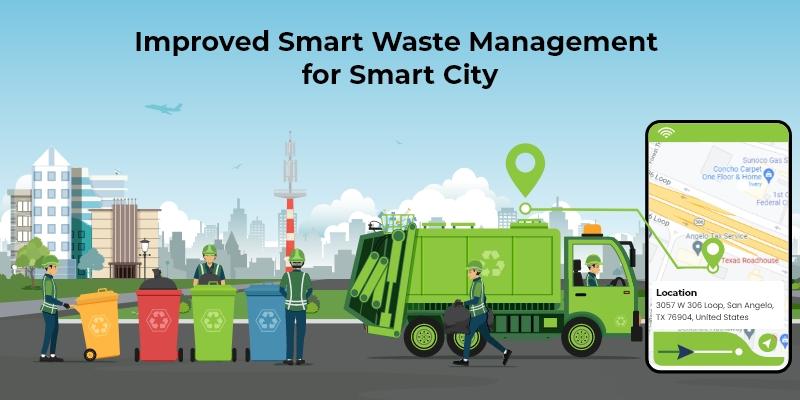Smart Waste Management Market Research Report on Current Status and Future Growth Prospects to 2030

The Growing Market for Smart Waste Management Solutions
Waste generation worldwide is projected to increase by 70% to 3.4 billion tons annually by 2050, according to the World Bank. This rise, driven by population growth and urbanization, is putting a huge strain on waste management infrastructure in cities across the globe. Addressing this challenge in a sustainable and cost-effective manner requires ‘smart’ solutions enabled by sensors, automation, data analytics and artificial intelligence. Global Smart Waste Management Market size is projected to grow at a compound annual growth rate (CAGR) of 24.38 percent, reaching a market size of USD 1.75 billion by 2030.
Several factors are catalyzing the adoption of smart waste technologies:
- Need for efficiency – Rising waste volumes are straining limited municipal budgets. Smart solutions optimize routes, automate processes and reduce operational costs.
- Environmental regulations – Stricter rules on landfill usage, recycling and carbon emissions compel new approaches. Smart waste data helps track and enforce compliance.
- Citizen expectations – People now demand greater sustainability, cleanliness and recycling in cities. Technology boosts accountability.
- Resource value – With raw material prices rising, the ability to recover resources efficiently from waste streams becomes more rewarding.
What are Smart Waste Management Solutions? Smart waste management leverages advanced technologies to achieve visibility and improve processes across the waste handling chain including collection, transport, separation, recycling and disposal. Key solutions include:
- Automated bins – Equipped with fill-level sensors and compaction to optimize pickups and reduce truck runs.
- Collection optimization – Route optimization algorithms and real-time tracking of trucks through GPS and RFID tags to lower fuel costs.
- Sorting and recycling – Automated machines aided by near infrared, X-Ray and AI to accurately separate different waste fractions.
- Waste-to-energy – Technologies like pyrolysis and gasification to generate electricity, biogas or heat from organic waste.
- Landfill/treatment analytics – Sensors to monitor hazardous gasses, leachate and emissions for safety and regulatory compliance.
- Decision support – Analytics dashboards on processing efficiency, fleet health, and other KPIs to aid planning and decision making.
Major Vendors in the Smart Waste Management Market
- Technology giants – Microsoft, IBM and SAP – Offering cloud platforms, analytics and IoT services.
- Engineering firms – Suez, Veolia (France), Enevo (Finland) – End-to-end smart waste management solutions.
- Automation specialists – Compology (USA), Ecube (UK) – Smart bin sensors and optimization algorithms.
- Waste contractors – RecycleSmart, Covanta – Adding smart capabilities to collection networks.
- Startups – Envirosuite, Aseptia, Recykal – Innovative AI and digital twin solutions.
Market Opportunities and Challenges
Smart technologies enable intelligent, sustainable and transparent management of solid waste, presenting growth opportunities like:
- New revenue streams from recycled materials, renewable energy and carbon credits.
- Operational and cost efficiencies allowing municipalities to extend service coverage.
- Improved recycling rates and landfill diversion through real-time monitoring and sorting.
- Increased customer satisfaction through clean neighborhoods and bins.
However, adoption faces challenges including:
- High upfront costs of retrofitting legacy infrastructure.
- Integration difficulties with fragmented waste management systems.
- Need for skill building and cultural change within waste organizations.
- Cybersecurity risks with increased use of IoT and cloud software.
The smart waste management concept has gained significant traction as early successes demonstrate the environmental and economic benefits. While promising, scaling smart technologies across thousands of cities will require overcoming the challenges around technology integration, stakeholder alignment and financing innovation in the waste sector.
Cognitive Assessment And Training Market- The cognitive assessment and technology market industry is projected to grow from USD 3.68 Billion in 2023 to USD 25.10 Billion by 2032
Smart Highways Market- The Smart Highways market industry is projected to grow from USD 24.8 Billion in 2023 to USD 97.76 Billion by 2032
Digital Logistics Market- The Digital Logistics market industry is projected to rise from USD 24.1 Billion in 2023 to USD 85.4 Billion by 2032
At Market Research Future (MRFR), we enable our customers to unravel the complexity of various industries through our Cooked Research Report (CRR), Half-Cooked Research Reports (HCRR), Raw Research Reports (3R), Continuous-Feed Research (CFR), and Market Research Consulting Services.
MRFR team have supreme objective to provide the optimum quality market research and intelligence services to our clients. Our market research studies by products, services, technologies, applications, end users, and market players for global, regional, and country level market segments, enable our clients to see more, know more, and do more, which help to answer all their most important questions.
Also, we are launching "Wantstats" the premier statistics portal for market data in comprehensive charts and stats format, providing forecasts, regional and segment analysis. Stay informed and make data-driven decisions with Wantstats.
Contact:
Market Research Future (Part of Wantstats Research and Media Private Limited)
99 Hudson Street, 5Th Floor
New York, NY 10013
United States of America
+1 628 258 0071 (US)
+44 2035 002 764 (UK)
Email:sales@marketresearchfuture.com
Website:https://www.marketresearchfuture.com
- Art
- Causes
- Crafts
- Dance
- Drinks
- Film
- Fitness
- Food
- Games
- Gardening
- Health
- Home
- Literature
- Music
- Networking
- Other
- Party
- Religion
- Shopping
- Sports
- Theater
- Wellness
- IT, Cloud, Software and Technology


